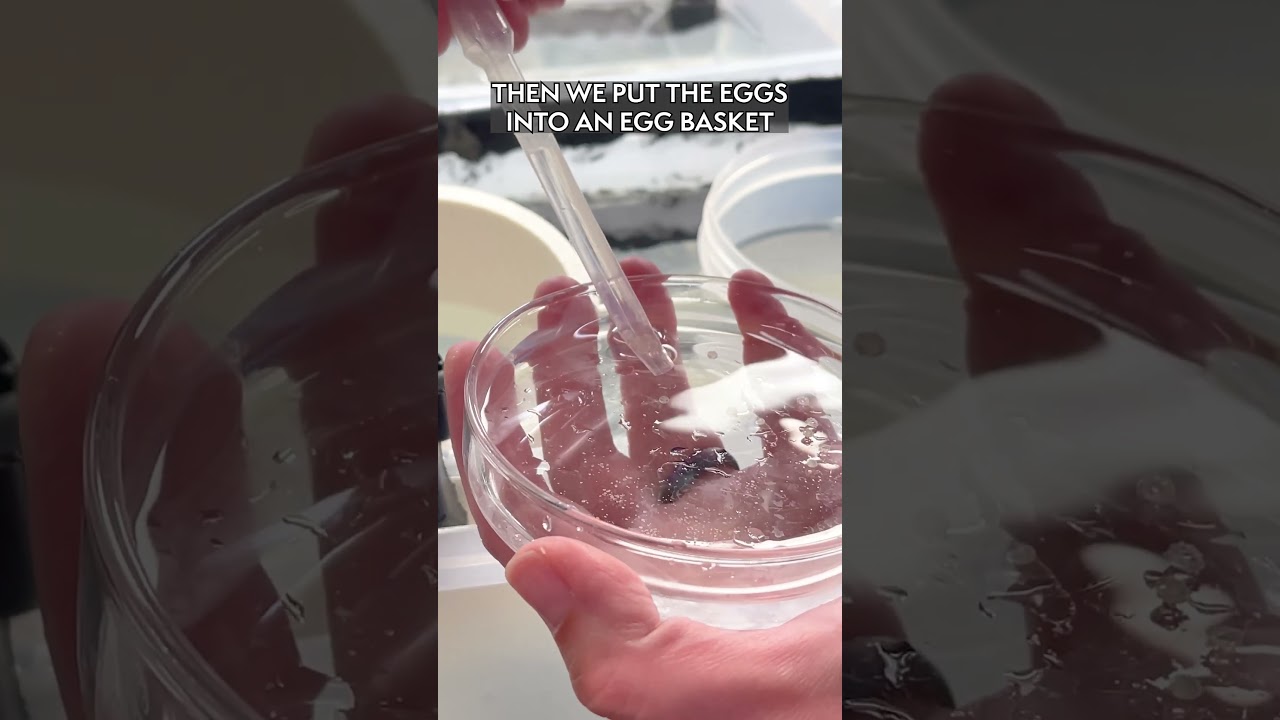– Introduction to the innovative project of growing Tangerines (Fish, NOT Fruit) at a Conservation Institute
– The environmental and conservation significance of the Tangerine darter fish
– The role of advanced aquaculture techniques in the conservation of the Tangerine darter
– The broader implications of Tangerine darter conservation for ecosystem health and biodiversity
– Community engagement and educational opportunities surrounding the Tangerine Darter Conservation project
In an unprecedented move, a conservation institute has embarked on a project titled “What the Heck?! We’re Growing Tangerines (Fish, NOT Fruit) At Our Conservation Institute!” This initiative is not about cultivating the tangy citrus fruit but rather focuses on conserving a lesser-known freshwater species known as the Tangerine darter. This vividly colored fish holds significant environmental and ecological value. This initiative is a testament to the innovative approaches adopted in wildlife conservation and the growing emphasis on preserving biodiversity through sustainable practices.
The Tangerine darter (Percina aurantiaca) is a brightly colored fish native to freshwater ecosystems in the United States. Despite its vibrant appearance, this species faces numerous threats from habitat destruction, pollution, and over-exploitation. Recognizing this species’ critical role in the aquatic food web, the conservation institute has prioritized its protection. By focusing on the Tangerine darter, this project underscores the importance of conserving often overlooked species that play crucial roles in their ecosystems.
Advanced aquaculture techniques form the backbone of this effort to grow Tangerine darters. By replicating the natural conditions necessary for their breeding and development, the institute has created a sustainable model for their propagation. These methods include controlling water quality and temperature and creating habitat structures that mimic their natural environment. Such techniques improve Tangerine darters’ survival rates and offer a blueprint for the conservation of other freshwater species facing similar threats.
The implications of successfully conserving the Tangerine darter extend beyond the immediate survival of the species. It highlights the interconnectedness of ecosystem health and biodiversity. A healthy population of Tangerine darters indicates a well-functioning aquatic ecosystem, which benefits other species within the same habitat, including those of economic importance to humans. Moreover, it indicates water quality, as these fish thrive in clean, unpolluted waters. Thus, their conservation contributes to the broader goal of maintaining biodiversity and ensuring sustainable ecosystems.
Community engagement and education are pivotal to the “What the Heck?! We’re Growing Tangerines (Fish NOT Fruit) At Our Conservation Institute!” project. By involving local communities and schools in the conservation efforts, the institute aims to raise awareness about the importance of freshwater ecosystems and the species they support. Educational programs and interactive sessions allow the public to learn about the complexities of aquatic ecosystems and the significance of species like the Tangerine darter. This fosters a sense of stewardship and encourages community involvement in conservation efforts.
Overall, the institute’s conservation of the Tangerine darter represents a forward-thinking approach to wildlife preservation. Through applying advanced aquaculture techniques and focusing on ecosystem health, this project demonstrates the potential for conservation initiatives to adapt and thrive in the face of environmental challenges. Additionally, by engaging with the community and emphasizing education, the project not only aims to secure the future of the Tangerine Darter but also to inspire a new generation to commit to the protection of our planet’s irreplaceable biodiversity.
*****
Source Description
For the last two years, we’ve been working closely with Tennessee Wildlife Resources Agency to spawn and raise Tangerine Darters to serve as (unharmed) hosts for baby endangered freshwater mussels. Even though this unthreatened species is a GIANT among darters, its eggs are still very small and clear, making the process of finding and collecting them a truly epic egg hunt!
#biology #science #fish #darters #mussels #tennesseeaquarium #aquariums #didyouknow #dyk #whattheheck


